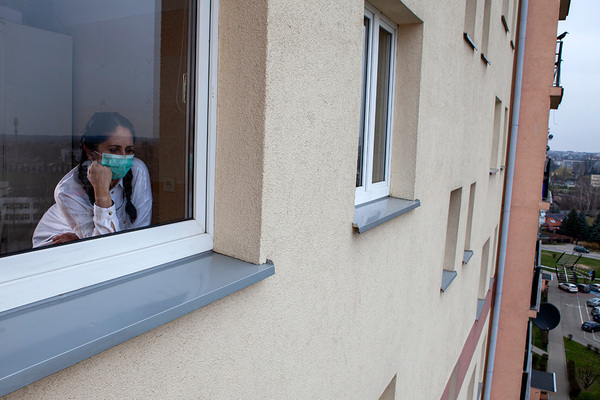You are viewing 1 of your 1 free articles
Poor-quality housing has made lockdown so much worse for tenants
People in poor-quality housing suffered through lockdown and face greater problems still this winter, research by the Northern Housing Consortium has revealed. Tracy Harrison explains the findings
Personal experiences of the COVID-19 crisis have, of course, varied widely. But for people living in low-quality housing in the North, spending more time in non-decent homes has taken a physical and mental toll. Worryingly, this will undoubtedly be even greater should a winter lockdown occur without appropriate support measures in place.
When the national lockdown was announced in March, we moved fast to ensure the experience of those living in poor-quality housing in the North through this period was recorded and shared.
“Households were already living with longstanding repair and quality issues but many of these were not addressed, with essential work postponed”
With the support of the Nationwide Foundation, the Northern Housing Consortium partnered with the University of Huddersfield, which interviewed tenants predominantly living in private-rented sector properties over a two-month period (May-June 2020). The release of the research findings coincides with large portions of the North entering the highest level of restrictions imposed since lockdown was lifted, with an eventual return to lockdown feared by many, and as such they point towards a very bleak winter for some in the region.
Home should have been a place where people felt safe from the global pandemic, but this research has found that existing and new housing challenges arose through lockdown, putting greater pressure on some of those most at risk. Households were already living with longstanding repair and quality issues but many of these were not addressed, with essential work postponed. Overuse of homes and inclement weather also contributed to a worsening of already poor conditions. This will have caused a backlog of repairs that is not likely to have been fully addressed as restrictions tighten again.
Although some private landlords were reported to be proactive, many were very unsympathetic about the plight of their tenants. Renters felt they could not engage with their landlord for fear of rent reprisals. A common finding from the report is that people prioritised rent over other household costs including food – typically, people prioritised rent, heat and food, in that order.
Despite the interviews taking place in typically warmer months, most people felt cold, watching heating bills rise throughout the year. As one private renter in Manchester put it:
“I just feel like because of the lockdown, the days when we are inside the house, the children like to be warm, so I put the heating on a lot more often. I feel like the costs are just excruciating really; it’s very expensive having to keep topping up the heating costs.”
People also spoke of the cost of running various appliances, again, particularly when children were present. Working from home or not being able to go to work at all impacted severely on household energy consumption. Across winter, this is likely to be felt even more severely.
“Run-down properties are resulting in run-down people”
Many of those living in poor-quality housing are those with pre-existing vulnerability, suffering from inequality or precarity. The health impacts of lockdown, particularly under the conditions already outlined, have caused coughs and illnesses – and in many, the onset or resurgence of mental ill-health.
A winter lockdown would impact on those most energy-vulnerable. With increasing income insecurity and increasing costs, many risk reaching financial and mental breaking point.
Residents were not helpless by any measure and many employed their own coping strategies to try to alleviate pressures. With repairs, for example, people placed buckets under leaking roofs and in some cases even bypassed landlords by paying for repairs themselves. In an attempt to retain precious heat, people would leave curtains closed all day. Others used ear plugs to block out noise. However, these are clearly not viable long-term options.
While we like to think of our homes as our personal sanctuary, for many of those interviewed in the survey, when robbed of their work routines and social lives they were forced to spend more time than ever before in conditions that were actively detrimental to their physical and mental health.
It is clear from this research that run-down properties are resulting in run-down people.
Action must be taken now to support those people affected.
We need to see immediate steps from government to strengthen lifelines to keep people afloat this winter.
But in the longer term, we must learn lessons from lockdown and renew our housing, so we have properties available that are fit for people to live and thrive in, not just live and survive.
Tracy Harrison, chief executive, Northern Housing Consortium
Sign up for our daily newsletter
Already have an account? Click here to manage your newsletters













